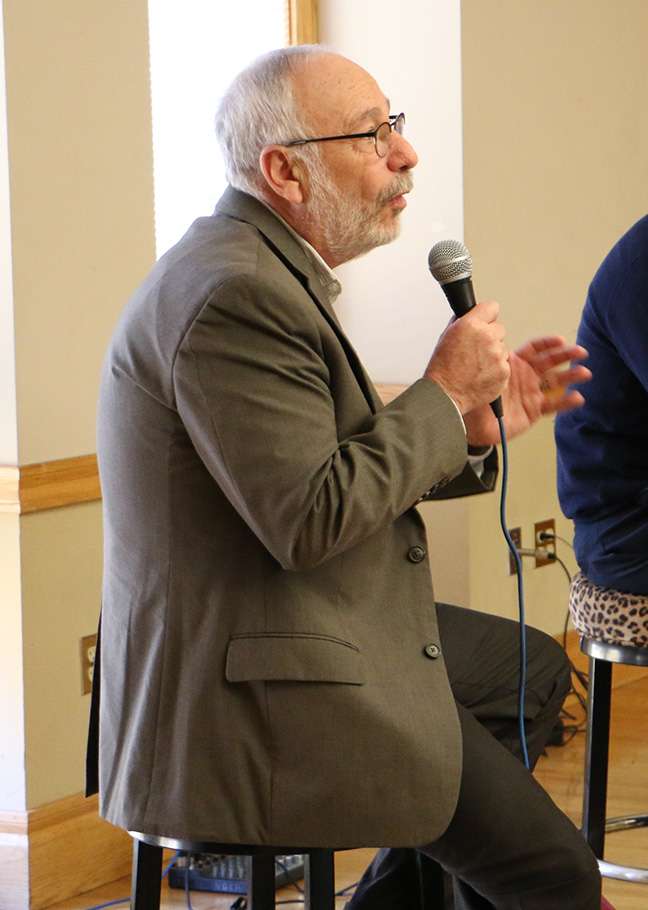IDEAL Center highlights social entrepreneurship success story featuring Joe Maddon ’76
By Bill Landauer
Hazleton needed entrepreneurs.
The central Pennsylvania city wasn’t looking for someone to move to town and build a smartphone factory or a better light bulb. It needed a social entrepreneur—someone who could help heal racial and economic schisms forming in the town.
It got help from a team of residents led by its hometown hero, Chicago Cubs manager Joe Maddon ’76, who brought the skills and spirit of entrepreneurship. Instead of a profit, the measure of success was social change.
Hazleton Integration Project, a nonprofit founded to meld the city’s burgeoning Latino population with the rest of the city, is more than just the charitable pet project of a sports celebrity. Rather, it’s creating real change in Maddon’s hometown.

Bob Curry speaks at the IDEAL Center luncheon.
“We take very seriously our ability to meet the needs of the people we serve,” Bob Curry, the project’s founding president, told a group of Lafayette students gathered at a recent IDEAL Center luncheon.
Elaine Maddon Curry and her husband, Bob, visited Lafayette to discuss their launch of Hazleton Integration Project as a story of social entrepreneurship.
“Social entrepreneurship requires many of the same skills as traditional entrepreneurship,” says Yusuf Dahl, director of the IDEAL Center. “Problem definition, market validation, financial literacy, and team building are just as important for the person looking to improve a social condition as they are for someone building a product. The fundamental difference is how you measure success. For a for-profit that is fairly easy; for the socially driven that can be harder to quantify.”
The success of Hazleton Integration Project might be hard to quantify, but it’s easily as difficult to dismiss. The Currys told Lafayette students the story of how it had launched after a conversation over wine. Hazleton had an integration problem; there’d been an influx of Hispanics to the area, but the newcomers stayed separate from the town along racial lines.
They launched the initiative in 2011 to promote interaction among residents, especially children, through community activities.
The group eventually purchased a shuttered Catholic school building in Hazleton to house various classrooms used to teach language and other skills. The team hit upon the idea of leasing unused portions of the mammoth space to other nonprofits and used the rent to defray costs.
When they opened the doors at Hazleton One Community Center in 2013, they found 2,000 people waiting. It continues to serve as many people each week.
Slowly, the organization has gained more acceptance in Hazleton, and the community is more eager to join in.
“When we started, I was going out hat in hand, ‘hey brother, can you spare a dime?’” Curry says. “That doesn’t happen anymore.”
Dahl says the IDEAL Center works to encourage social entrepreneurship first through awareness.
“By showcasing organizations like HIP, we highlight the impact and effectiveness one can have in their community through innovation and entrepreneurship,” he says. “Secondly through our workshops and other co-curricular programming we can help students develop the specific skills they need to be effective in these type of endeavors.”
